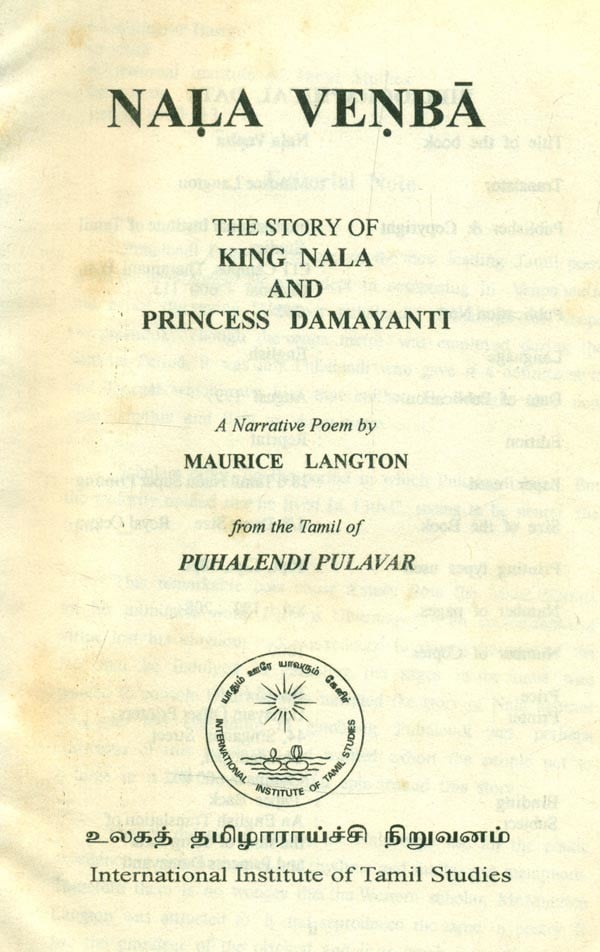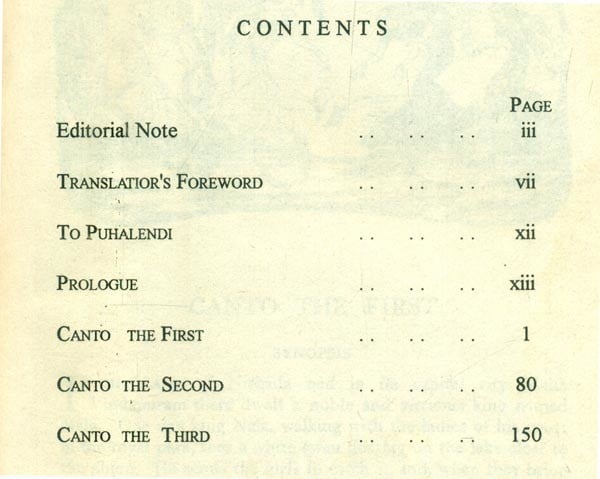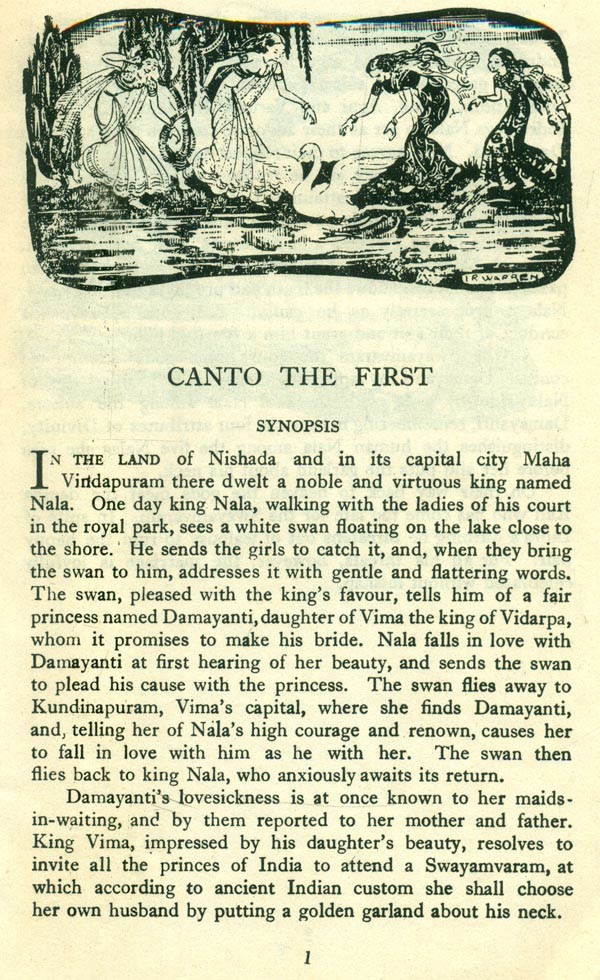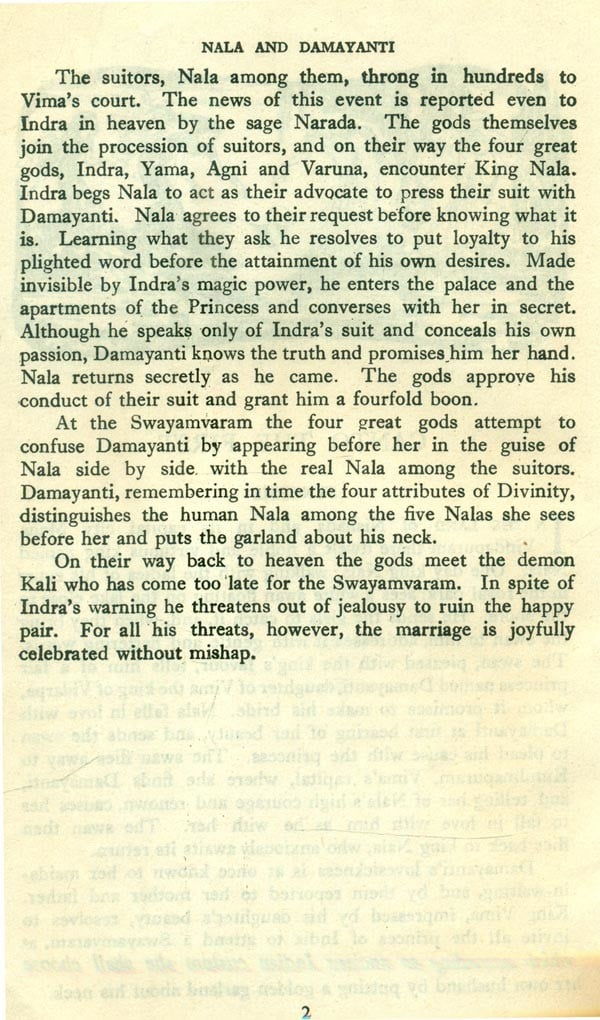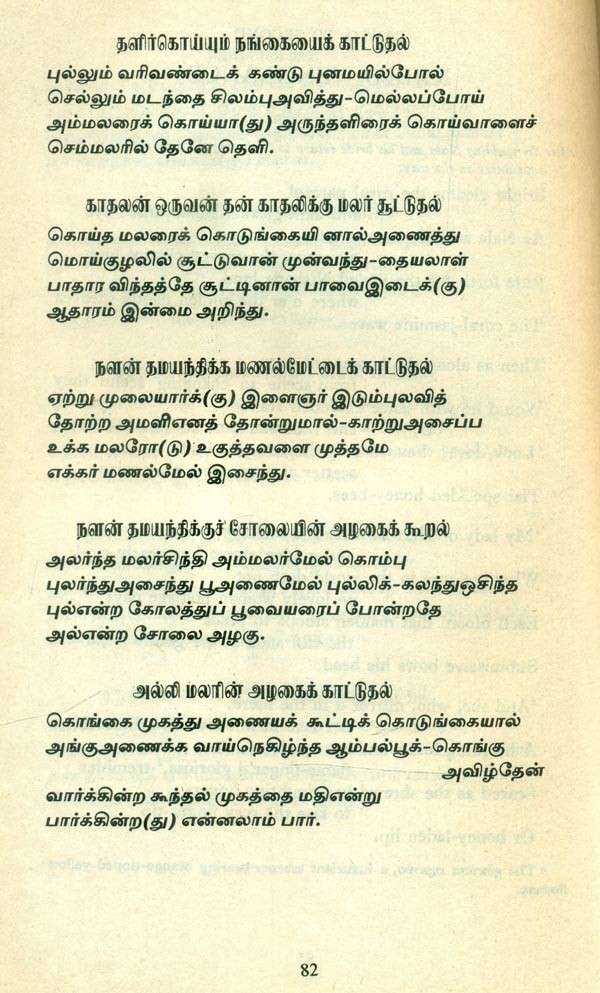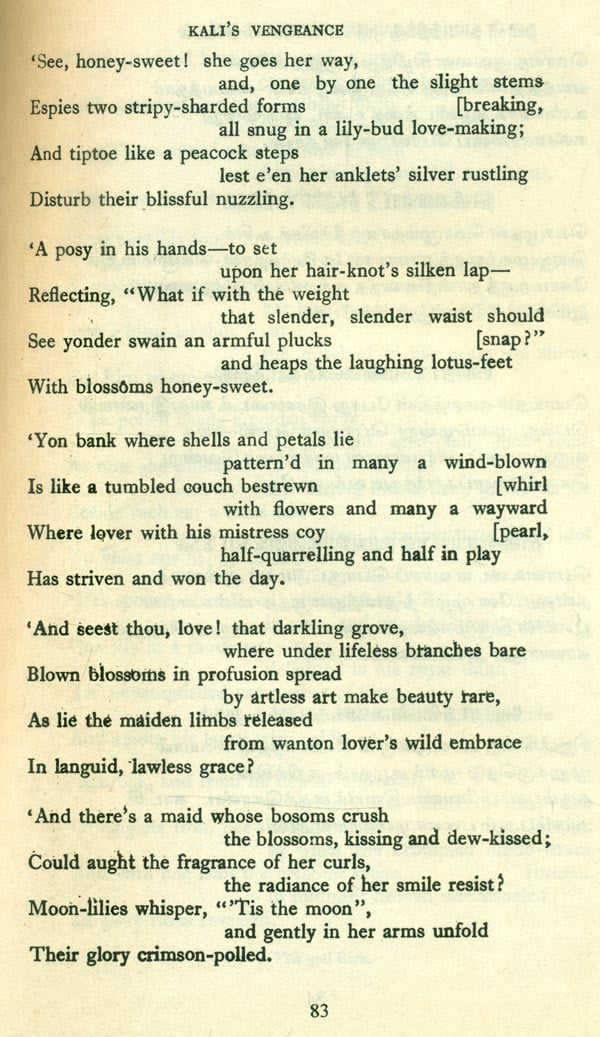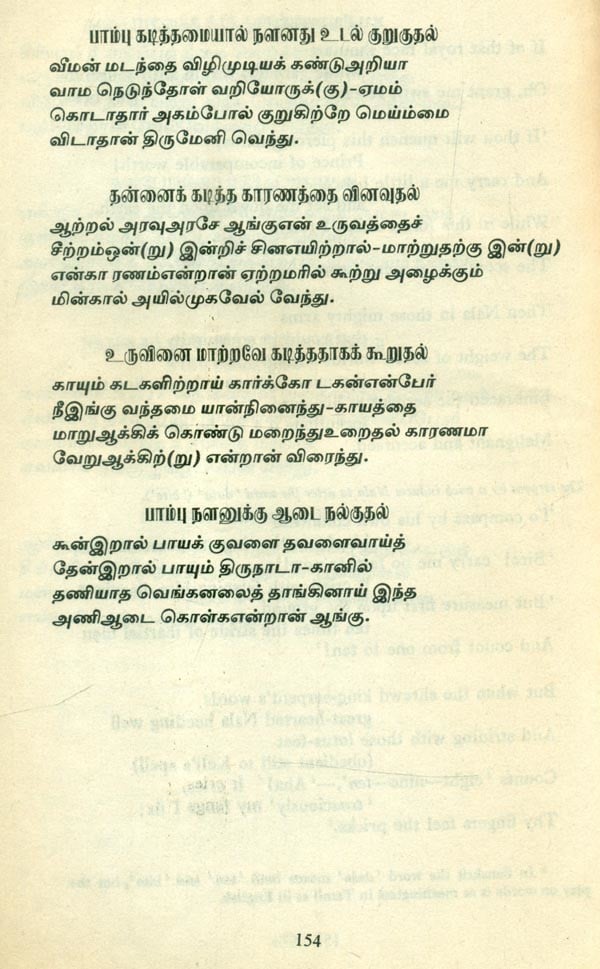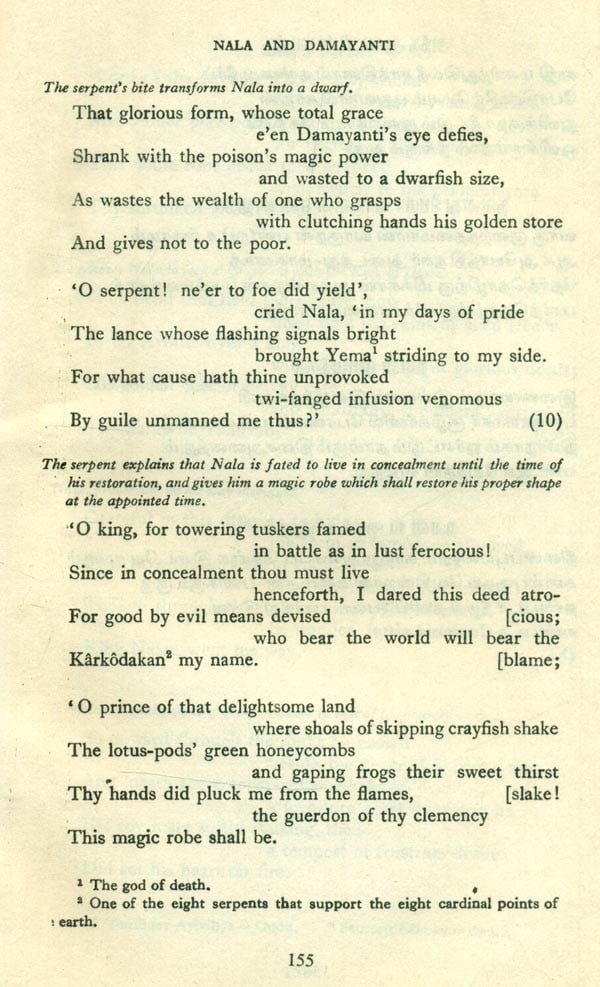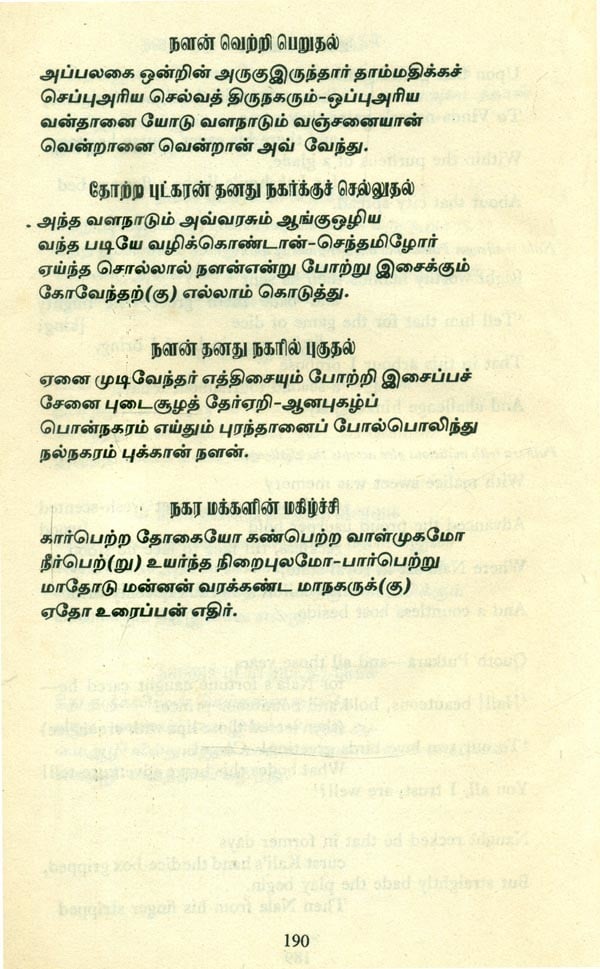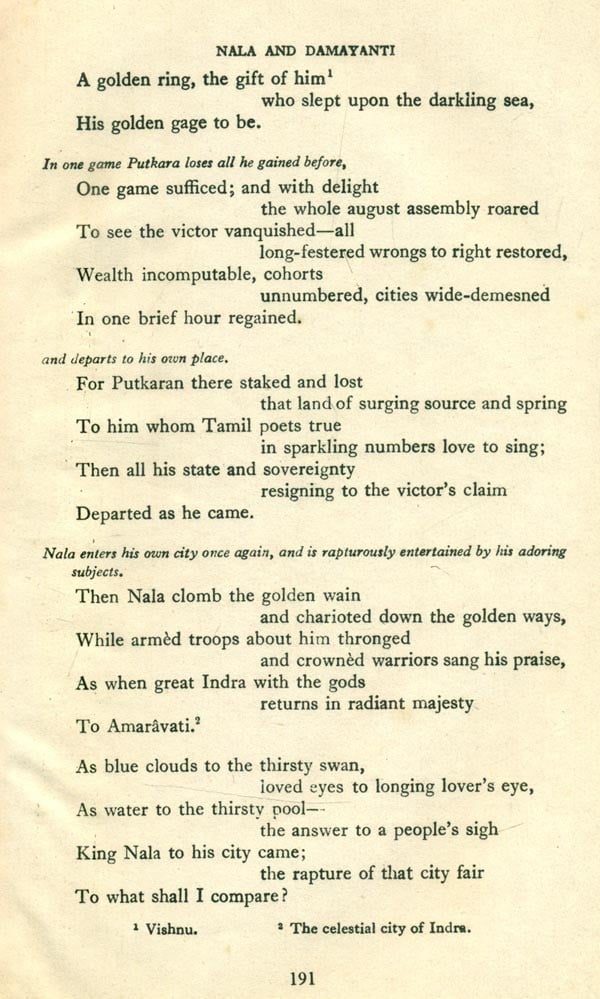
Nalavenba- The Story of King Nala Princess Damayanti (An Old and Rare Book)
Book Specification
| Item Code: | AZG745 |
| Author: | M.C. Langton |
| Publisher: | International Institute of Tamil Studies, Chennai |
| Language: | TAMIL AND ENGLISH |
| Edition: | 1997 |
| Pages: | 208 (2 B/w Illustrations) |
| Cover: | PAPERBACK |
| Other Details | 8.50x5.50 inch |
| Weight | 240 gm |
Book Description
On the vexed question whether poetry, if it is to be translated at all, should be literally translated into prose or rendered into verse, the translator is clearly on the side of Fitzgerald and Covington. A literal translation of such a poem as this would be intolerable. It must be admitted that there are stanzas where, owing to the immense compression of which the Tamil language is capable, the less significant of a mass of conceits has inevitably been omitted, and occasionally an idea has been added to bring out the significance of the original. The frequently recurring otiose epithets of the Tamil poet have not always been faithfully rendered; on the other hand otiose epithets familiar to English poetry have been introduced as a kind of compensation. The whole style, with its archaisms, affectations, repetitions, and poetic clichés, is a deliberate imitation of the original. It is hoped that the resulting effect gives a not untrue impression of Puhalendi’s poem.
**Contents and Sample Pages**
